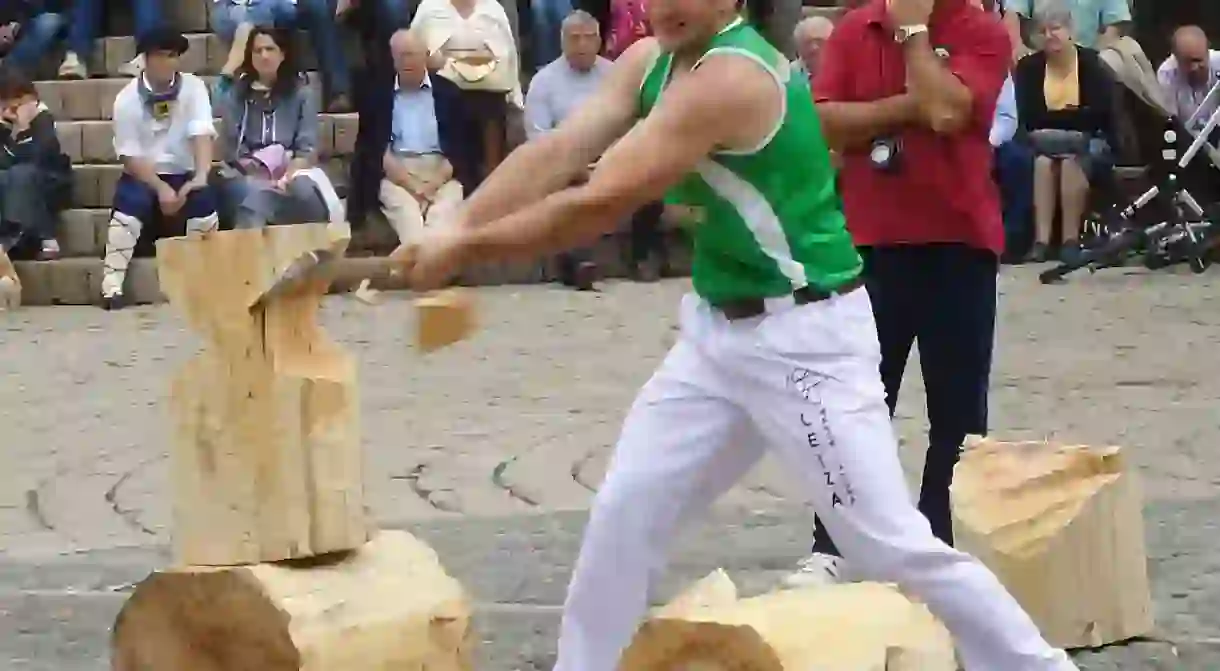Unusual Basque Games You've Never Heard of

There are many different games or sports which are unique to Spain’s Basque Country. While some of them may resemble games you’re already familiar with such as pelota and the card game mus, many are rural sports and involve competitions in things like woodchopping and stone lifting.
Pelota
Pelota is one of the most popular Basque sports, which is even played at an international level with other countries such as France, Argentina and the United States. It is similar to squash or handball and a very fast-moving game, involving balls being hurled at walls at great speed. There are various types of the game, using either your hand, a bat or a long pointed basket. To learn more about the pelota, take a look at Culture Trip’s brief history of the sport.

Aizkora
The most popular of the Basque rural sports is aizkora or woodchopping. It originated in the countryside when people needed wood for heating and builders needed it for construction. The game started as a series of bets and competitions to see who could fell the trees the quickest, and spiralled into a serious sport. Today, the official game, usually played at Basque festivals, involves woodcutters chopping a number of horizontal tree trunks while standing on a plank or chopping a single tree trunk in the lowest possible number of blows with the axe.

Sokatira
The Basque version of tug-of-war is known as sokatira and involves two teams of eight people that aim to drag the other team over a central line by pulling on a rope. Players must keep both hands on the rope and not step away from their line.

Harrijasotze
Harrijasotze means stone-lifting and is akin to a strongman competition. Participants compete to lift different sizes, shapes and weights of stones and place them on their shoulders. Usually ‘played’ at fairs and festivals, participants are known to lift stones as heavy as an impressive 300 kilograms.

Igel Jokoa
Igel Jokoa translates as ‘frog game’ and is usually played in bars or traditional cider houses known as sagardotegi. It is played using a large wooden chest, filled with various empty compartments and topped by an opened-mouth metal frog, a mill and a bridge. The idea of the game is to hurl metal discs at the chest to try and aim them into one of the compartments, e.g. the mill, bridge or frog. The most points are awarded for getting the disk into the frog’s mouth.

Mus
Mus is a card game played all over Spain, as well as in South America, but it is thought to have been invented in the Basque Country. It is played by four players working in teams of two and uses the Spanish deck of cards (40 in total, excluding eights, nines, tens and jokers). The game has a total of four rounds and is based on the principle of points and bids. Many of the terms in the game come from the Basque language such as ‘órdago’.














